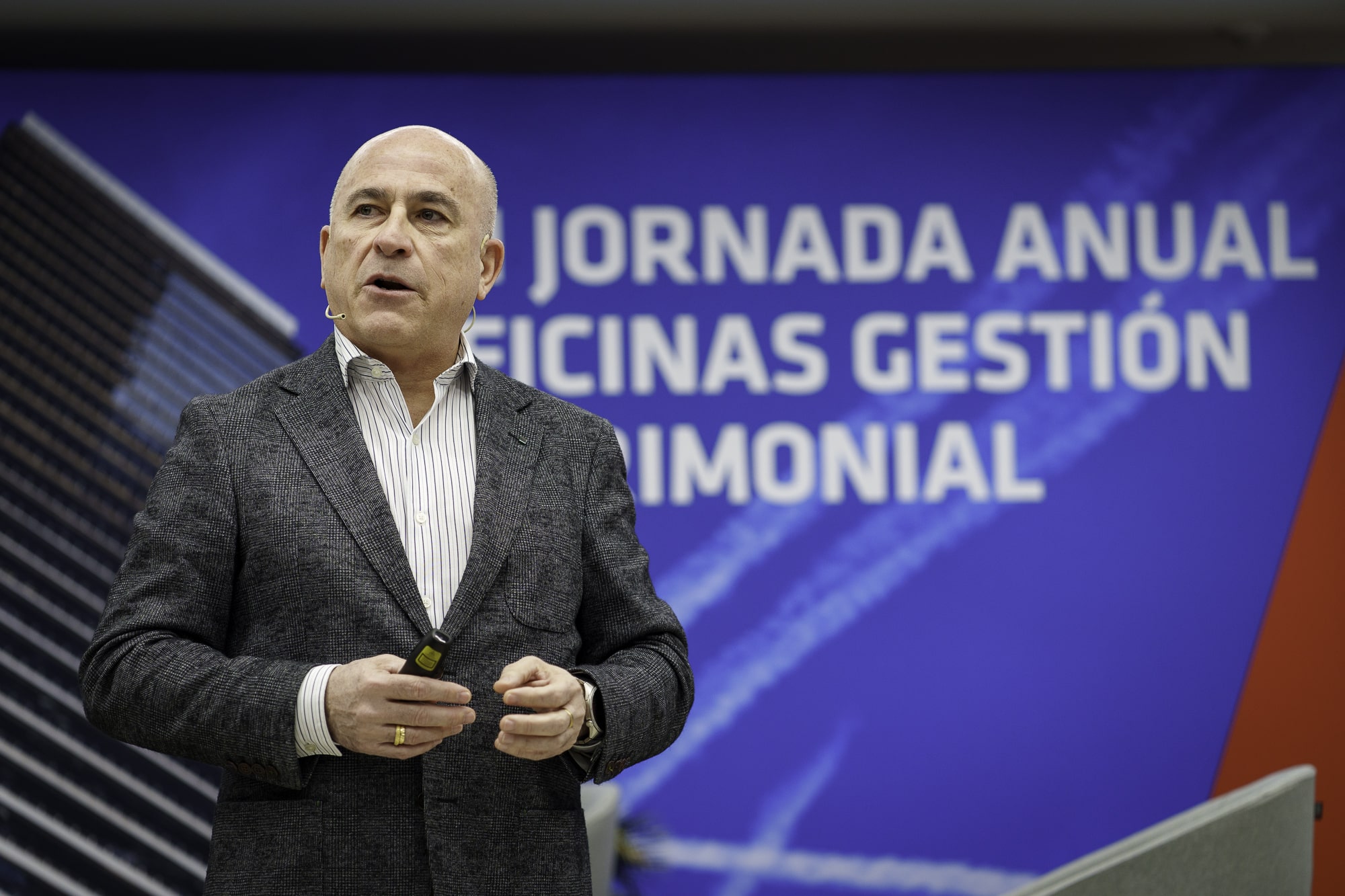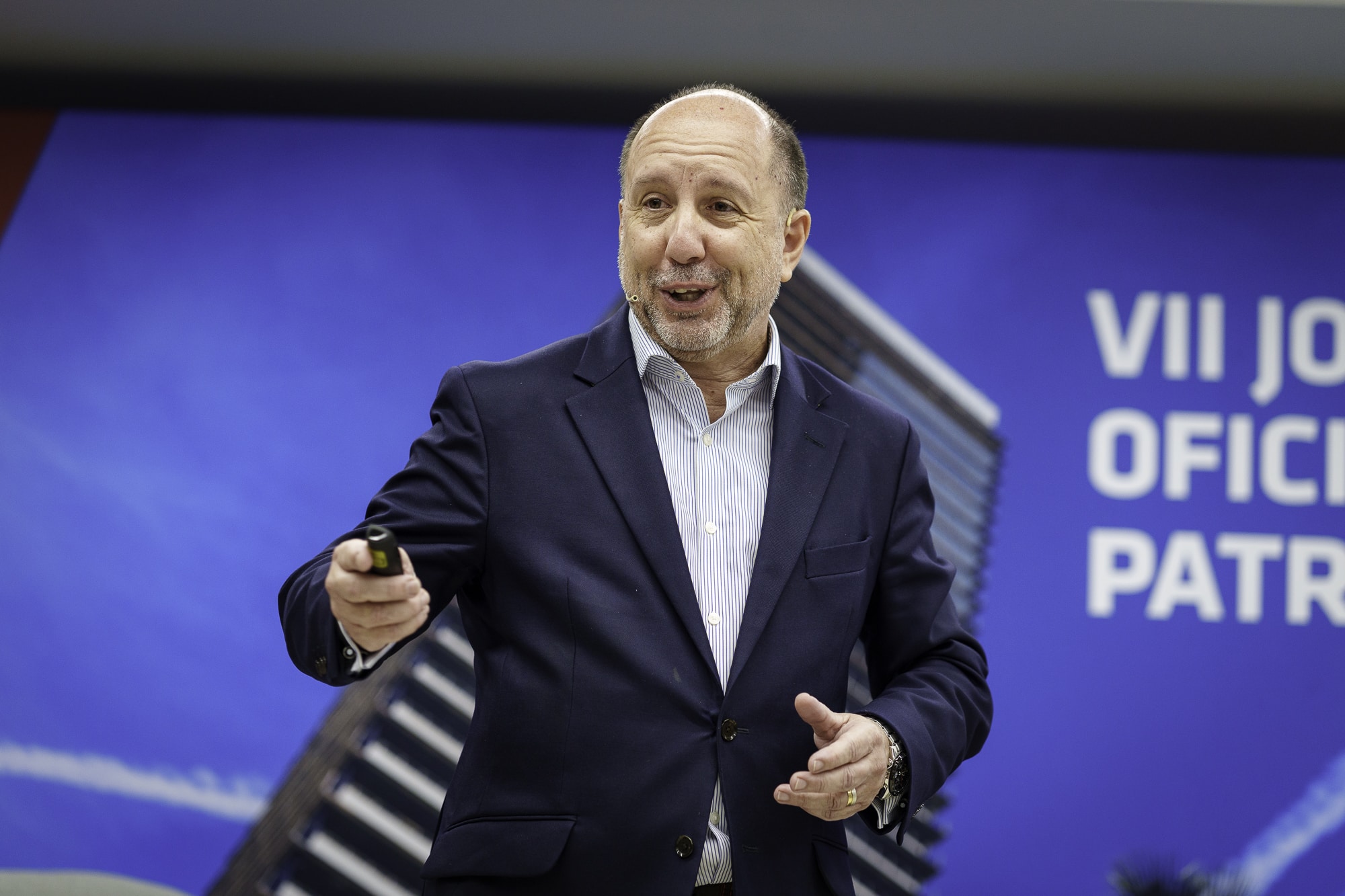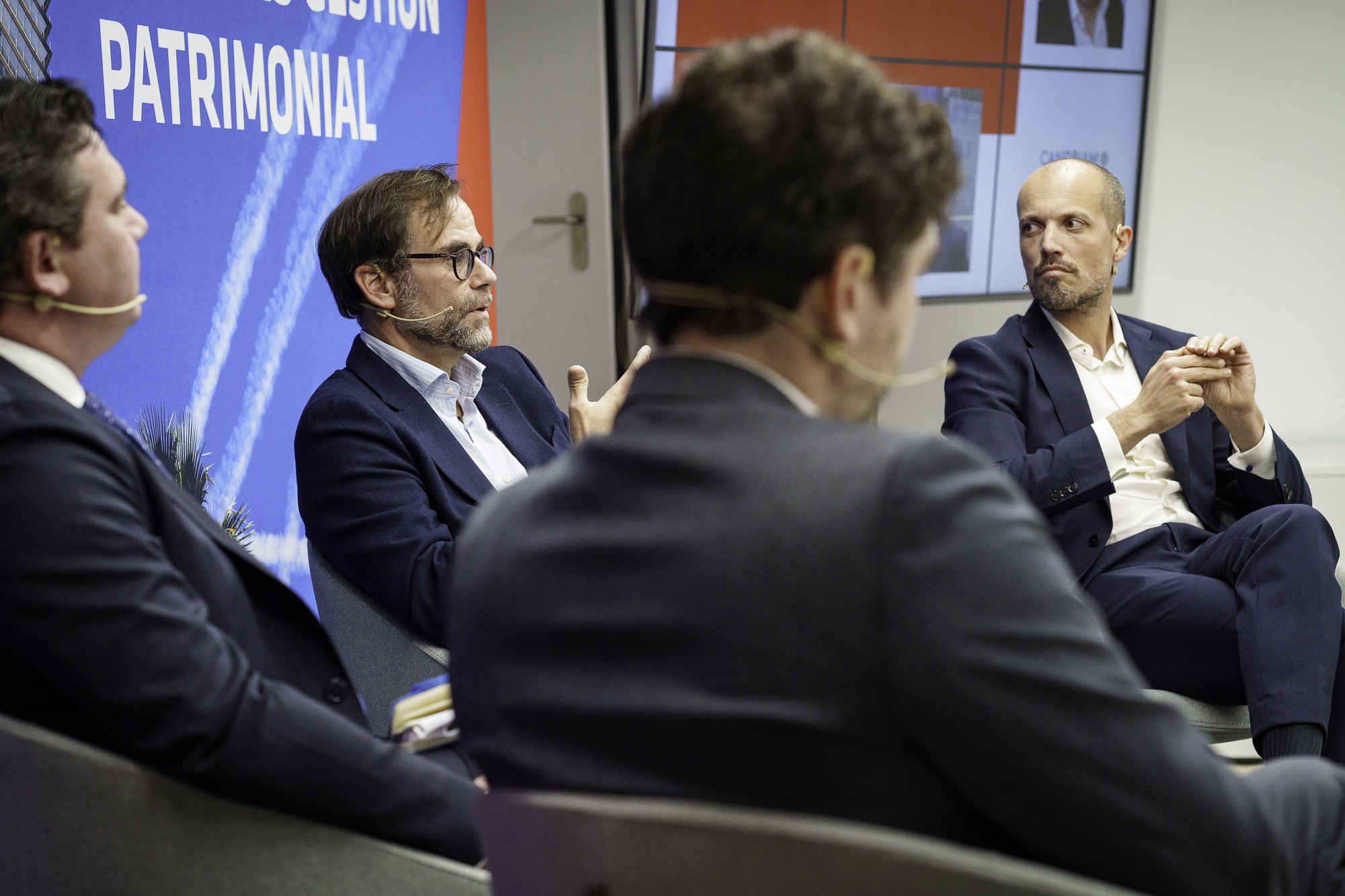Annual MGP Conference: “Regulatory changes can also present an opportunity”

Redacción Mapfre
Investor protection, new players entering the finance sector, the democratization of some investment segments, and various technological advances, among other factors, have forced asset managers and advisory firms to adapt to various regulatory changes. These strategies are frequently viewed as costs, stemming from the necessary adjustments and, at times, the training required for staff. However, it’s important to recognize that they can also present opportunities.
This point was underscored by Miguel Ángel Segura, the General Manager of MAPFRE Inversión, during the 7th Annual Conference of MAPFRE Gestión Patrimonial branches. The event attracted over 200 attendees, both online and in-person, and was held this year at the Torre MAPFRE in Barcelona.

The General Manager of MAPFRE Inversión was specifically referring to the Retail Investment Strategy (RIS), which comprises a set of measures designed to safeguard retail investors and promote their engagement in investment products characterized by enhanced transparency.
“Whenever there are regulatory changes, we always tend to think they’ll involve spending money and undertaking administrative burdens. But I believe it’s also important to consider the positive aspects. The objective is to enable retail investors to access the financial world with the guidance and capabilities that institutions like ours are equipped to offer,” he stated. “In short, it’s about making more informed decisions.”
These measures aim to standardize the rules of conduct and obligations for companies involved in the distribution of products. Eduardo Saavedra, Manager of Life, Health and MGP Specific Networks, added that implementing RIS presents a challenge, emphasizing the importance of initiating work on this model change as soon as possible, mirroring previous experiences such as with MiFID II.
Despite the regulatory changes and the evolving economic landscape, as well as the myriad challenges confronting the industry, maintaining close customer relationships remains one of the pillars of MGP.
“In this complex and swiftly changing world, where all things seem fleeting, we must recognize that people still value and seek close connections, especially in the aftermath of the pandemic. We have to make that effort to be close to our customers. Trust is key,” stated Joaquim Miró, Regional General Manager for Catalonia and the Balearic Islands.
2023 milestones and the new strategic plan
Last year was very positive for MGP, as it closed 2023 with €1.12 billion under management, 12,000 customers, and three new offices, bringing the total to 10. MAPFRE's advisory area recently presented its Strategic Plan 2024-2026, which plans to reach €2 billion from equity in that period, 80% more than at the end of last year.
MGP had a good year, in line with the Group, as highlighted by Jesús Martínez Castellanos, Deputy CEO of MAPFRE Iberia and CEO of MAPFRE Vida, when presenting the results to those attending the conference.
During his speech at the conference, Enrique Palmer, Business Development Director at MGP, emphasized that the number of branches will expand to 16, with new locations in areas not traditionally associated with financial services. Additionally, the number of advisors will increase to 33, representing a 37% growth compared to the end of 2023, and the number of customers is set to reach 15,000.

“We’re outpacing the competition in both the mutual fund and pension plan sectors,” added Jaime Sobrino, Sales Manager at MAPFRE Inversión, who commended the outstanding performance of the Barcelona branch. There, the number of customers grew by over 13% in 2023, and the average monthly amount per customer increased by 17.5%.
Technology has been one of the major disruptions in the investment world and is also on MGP’s agenda for the coming years. Looking ahead to 2024, the primary objectives include introducing biometric signature capabilities at branches, adopting the new EAF model, and introducing online ownership verification, among other initiatives, as Santiago González, Operations Manager at MAPFRE Inversión, explained during the conference.
Sustainability
ESG investment has been present in the sector for several years now, following the entry into force of regulations such as the Sustainable Finance Disclosure Regulation (SFDR). At MAPFRE, the priority has always been to avoid greenwashing.
“We have to treat this as an opportunity and make sure that we can use it to educate the customer, as this is part of the advisory process,” said Daniel Sancho, Chief Investment Officer at MGP. He made this statement during a panel discussion that also featured Eduardo Ripollés, Institutional Business Development Manager at MAPFRE AM; Ignacio Martín-Villalba, Institutional Relations Manager at Candriam; and Borja Fernández, Institutional Business Director at Schroders.

Alberto Matellán, Chief Economist at MAPFRE Inversión, added that “ESG criteria add value if they are used well, if there’s training.” “This is what we want to do at MAPFRE,” he explained.
Nevertheless, implementing these criteria can pose challenges for both managers tasked with selecting companies and fund selectors responsible for analyzing the characteristics of each instrument, as explained by Ismael García Puente, Head of Investment and Fund Selection at MGP.
“The choice of investment managers and funds is a complicated process that depends on a large number of variables, from sustainability criteria to investment concentration or assets under management,” said García Puente.


